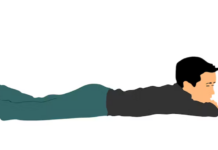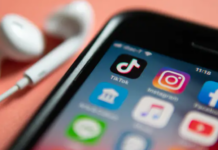Children spend a lot of time in school. As a rule, however, schools do not see themselves as equipped to provide help with the sorts of problems that your child (or other children) may be experiencing. They do not see it as their responsibility or as a feature of their mandate to provide life skills classes or issue-oriented classes on dealing with, for example, toxic family interactions or self-esteem and self-image issues. Some schools create peer counseling programs and in other ways try to help their students deal with their distress and difficulties, but most don’t—and often simply can’t.
What a school is relatively able to do, however, if its administration decides to stretch a bit, is to bring in outside programs designed to help youth with exactly these issues. These programs have many virtues. Not only is valuable information provided but it is also provided in a way that allows students to sit back in the audience and take the information in without having to react in the sort of defensive way they might in a one-on-one situation, say in a therapist’s office, a psychiatrist’s office, or in a heated exchange with their parents.
Consider an analogy with Alcoholics Anonymous. There are many reasons why Alcoholics Anonymous is so helpful. One important reason is that you can walk into a meeting, whether or not you are ready to get sober, and sit anonymously among your peers and hear someone share stories about his or her drinking that are relevant to you. You aren’t obliged to share; as a newcomer, you’re only asked to introduce yourself. Even as a regular you don’t have to share unless you feel like it. This is a very useful feature of the AA model, being able to sit there without being scrutinized, questioned, or put upon in any way.
What sorts of programs might a school bring in? Take Nicole Gibson’s offerings. Nicole brings programs to schools across Australia. A finalist for Young Australian of the Year in 2014, named one of Australia’s top 100 most influential women, appointed onto the National Mental Health Commission as the youngest-ever commissioner, and winner of the Pride of Australia Inspiration Medal in 2014, Nicole established The Rogue & Rouge Foundation to help Australia’s young people deal with body image issues and self-esteem issues. Taking her programs into both primary schools and high schools, she’s facilitated workshops in hundreds of schools and reached hundreds of thousands of Australian youth. Her programs include nine-week well-being programs, youth motivation days, teachers and parents nights, a “hero within” prevention program, and more.
Nicole explained to me: “It’s important for schools to remember that they can’t be everything for their students. There are valuable community organizations that specialize in the delivery of the sort of education that we do and it’s the school’s role to take initiative and form those crucial relationships with external organizations. The relationship an objective facilitator can form with a student, in my experience, is a necessary consideration when it comes to this work. Young people will often tell me it’s far easier to open up to someone who’s a little bit removed from their everyday world, who’s closer in age and more easily relatable. For schools, it’s essential to create on-going opportunities for young people to engage with this work at different ages and different intellectual and emotional levels.”
What About A Peer Counseling Program At Your Child’s School?
Your child’s school can only do so much. By the same token there are many useful avenues a school might pursue that have proven to be of great help to students. Among the best are peer counseling programs.
Sande Roberts has worked in the crisis and behavioral health field for over twenty-five years and is a certified trainer of trainers in suicide prevention and crisis intervention, a board member of the Arizona Association for Conflict Resolution, an advocate for peer-led programs in schools, and the author of We Need To Talk About Suicide. Sande explained to me:
“I’ve worked with teens in various settings since 1990. Programs that work are ones where the youth themselves are mentored and taught skills to help themselves and their friends. The teen years are challenging and confusing. Youth are experiencing dramatic changes in their bodies, relationships, limits, and values. Peer pressure, rebellion, and curiosity frequently guide decisions. This is a time when people are wondering if the next suicidal, homicidal, or physically or emotionally bullied teen they hear about in the news will be someone they know: someone who lives next door, sits across the aisle at school, or is related to them.
“Peer-led teen programs have been around for a long time. Teens talk to, listen to, and believe other teens long before they consult with an adult. Schools with peer helper and conflict resolution programs have teens who are trained in peer education, leadership, listening and helping skills. The focus is identification and early intervention. My personal experience has been that teens become enabled to help themselves and their peers cope with a mega-list of relevant issues, including but not limited to suicide, violence on campus and in the community, intergenerational conflicts, relationship breakups, dangerous relationships, scholastic pressure, and teen sexuality.”
Might you be in interested in suggesting peer counseling to your child’s school administration? Here’s an interesting article to let your child’s principal know about that appeared in Education Week called “Schools Explore Benefits of Peer Counseling.” Alert someone at your child’s school to the powerful resource that is peer counseling!
http://www.edweek.org/ew/articles/2014/04/23/29peerconnection.h33.ht
In addition to and different from organizations that come into the schools, there are a wide variety of organizations that provide education, mentoring and community-building opportunities to young people. This particular combination is very powerful as young people learn life skills, are mentored by someone who takes a personal interest in them, and are held accountable in their group activities, whether the group activity is putting up a tent in the wilderness or putting on a play in a community theater. Consider the AA analogy again. An aspect of AA that participants find very valuable, when they feel ready for this step, is reaching out to and connecting with a sponsor. An AA sponsor is a seasoned program member who is willing to talk compassionately, directly and honestly with drinkers. This mentoring feature is a very important aspect of the AA experience.
What sorts of programs do I have in mind that provide mentoring, education and community building? Consider Rob Levit’s programs. Rob Levit is a multi-award winning creative artist and musician, nonprofit director and speaker on creativity living in Annapolis, Maryland. He is a 2013 Innovator of the Year recipient from the Maryland Daily Record and 2011 Martin Luther King Peace Maker Award recipient for his work with youth and adults. His programs, which connect creative pursuits and community building, do the three things I mentioned above: they provide information and mentoring and they teach youth how to hold themselves accountable in groups.
Rob told me:
“Think about what all successful creative people need to do – design, collaborate, communicate intent, persist, visualize and overcome blocks for starters. Each of our Creating Communities programs gently offers participants the opportunities to discover and engage in their own creative work.
“For example, during our summer Arts Mentorship Academy, sixty youth of all ages gather for five days of intensive dance, visual art, creative writing, world drumming and singing along with mentoring and cultural enrichment activities. Here they are challenged to sit with kids they wouldn’t normally choose to sit with, clean up messes they didn’t make and start and finish several projects in a week that a couple of hundred family and community members will watch on closing day.
“In my mind those are some good life skills to acquire! There is so much emphasis on individual achievement but when you are truly ‘creating communities’ the life skills acquired are about trusting each other, depending on each other and pushing each other in ways that we didn’t know we were capable of. In many ways, it’s an uncommon message in our current ‘there’s an app for that’ world. We ask our kids to look past ‘likes’ and ‘dislikes’ and find the meaning on the other side of their limits.
“What kinds of outcomes and successes do we have? To take one example, last summer we had an autistic youth at the Arts Mentorship Academy. At the end of the week one of our mentors told me that the youth’s guardians approached her at the final reception and asked, ‘What did you all do to our child?’ The mentor asked, ‘What do you mean?’ They replied, ‘He’s actually talking to us!’ They were absolutely delighted and had no idea that their own child could sing, dance and speak on stage.”
Mentoring Programs
Your child might well benefit from a mentoring relationship. Below is a sampling of mentoring programs and services. Some mentoring programs and services specialize in working with a particular population or issue, for example, Girls Education and Mentoring Services, which focuses on sexually exploited girls. Others see their mission as helping and empowering all children. This sampling will give you a good sense of what’s available—and what might be needed in your community.
Creating Communities: Harnessing the Power of the Arts
http://www.creatingcommunities.net/
Kids at Hope
Seeds 4 Success
Girls Educational & Mentoring Services
Children’s Friend and Family Services
http://childrensfriend.net/services/youth-mentoring/
Youth Mentoring Services of Niagara County, New York
http://youthmentoringservicesniagara.org/
Jacksonville Children’s Commission Mentoring Programs & Services
http://jaxkids.org/mentoring-programs/mentoring-programs-services/
Center for Family Services
https://www.centerffs.org/mentoring/welcome
The Guidance Center Mentoring
https://www.guidance-center.org/mentoring/
You might also try the online resources that are available to you and that you can access wherever you are in the world. For instance, consider Krista MacKinnon’s offerings. Krista was diagnosed with bipolar in her formative years, never accepted the story or the drugs the system prescribed, and chose her own path to meaning, personal growth, and healing. Upon graduating from college, Krista began searching for work and found a job posting that said: “Psychiatric survivors encouraged to apply.” That serendipitous event eventually led to her founding Families Healing Together, an organization that provides online classes for families who are struggling with mental health issues.
Krista shared the following:
“Families Healing Together helps families to understand and cope with the complicated experience of extreme distress, psychosis and psychiatric labeling. Traditionally, when someone in a family is given a psychiatric diagnosis, families are educated to understand the experience from a brain disease/medical perspective. They often aren’t given much else in terms of tools on how to heal and move forward as a family.
“The philosophy of Families Healing Together is to consider all information with a critical perspective. Instead of focusing on causes, symptoms, and explanations, we propose to instead focus on deeply connected interpersonal relating, healing, and hope. We do this by sharing a curriculum filled with powerful recovery stories, helpful communication tools, and informative theories and articles about human nature. People in the class give and get support from one another as they share their personal responses to the content, and they find solace in knowing that they aren’t alone in the journey.
“Our online classes are great for a number of reasons.
“1) As long as you have an Internet connection, the support is open and available to you at all hours.
“2) You can be completely anonymous if you choose to be, which can be incredibly liberating for many people.
“3) You don’t have to reorganize your life to ‘attend’ class because you engage with the materials as needed, at your own convenience.
“4) If you are struggling emotionally, communicating in person can sometimes feel like a challenging barrier. Communicating complex emotional concepts and epiphanies in bed in your pajamas at two a.m. in the moment you feel inspired and compelled to reach out is a real gift.
“5) It is unifying. People from all over the world take the class, so inevitably there is great diversity in the class, which translates to very rich and multi-faceted discussions.”
Safe Harbor: An Online Resource
Dan Stradford founded the mental health nonprofit Safe Harbor in 1998 and serves as its president. He is the lead author of a guide for physicians, Complementary and Alternative Medicine Treatments in Psychiatry, and he has published more than 250 articles and technical papers.
Dan told me:
“Safe Harbor is a nonprofit founded in 1998 by myself. Our mission is to educate the public, medical field, and government agencies on safe, non-drug treatments in mental health. Our organization coined the term ‘alternative mental health’ because, in 1998, there was alternative medicine but no equivalent in the mental health field.
“Our web site – www.AlternativeMentalHealth.com – was created in 2000 to provide the web’s first online directory of physicians and practitioners who offered safe, nondrug mental health treatments. Our site grew rapidly and has now had more than 6 million visitors internationally.
We offer many articles, a bookstore, access to a self-help listserv, and a listserv for health professionals called Integrative Psychiatry. Daily we review journal articles to find recent advances in alternative mental health treatments and post the information to our listservs.”
There are a wide variety of organizations and services available that provide life skills and parenting education, one-to-one mentoring to youth, parent peer support, education about alternatives to chemical solutions, education about safely coming off prescribed chemicals, education about alternative approaches to handling troublesome behaviors, difficult children (for example, physically abusive children), and children suffering from anxieties and despair, hotlines and trained helpers with whom you can speak, and workshops, classes and often a drop-in location where you, your child, or both of you can receive help and support.
Consider Michael Gilbert’s organization. Michael worked in human services for more than twenty-five years, including in foster care, group home, and hospital settings, and has worked for the past nineteen years as a school psychologist within the Syracuse, New York schools. In 2000 he founded “It’s About Childhood & Family, Inc.,” a not-for-profit resource center that provides families with an alternative to the traditional mental health system. He has advocated for and conducted research evaluating non-medication and non-labeling approaches for families with children exhibiting challenging behaviors. Dr. Gilbert received the Friend of Children Award in 2011, the New York State Psychologist of the Year Award in 2014, and the Spirit of Huntington Award in 2014.
Michael explained to me:
“Our mission at It’s About Childhood & Family Inc. is to empower families to develop independence in handling life’s struggles. We utilize a collaborative and trauma informed framework that is not reliant upon a label or a diagnosis. Instead we focus on strengths, resources, resiliencies, and potential for growth. We strive to more accurately inform parents, schools, and the larger community about issues related to mental health: for example, misuse of diagnostic labels, lack of efficacy with prescription drugs, and factors that contribute to social-emotional distress.
“Throughout the year we offer workshops and trainings for professionals and parents. In addition, we organize one or two conferences per year on a variety of topics such as trauma informed care, concerns with labels and psychotropic drugs, and approaches to improve the social, emotional and behavioral wellbeing of children. We have brought in national and international experts in the field. Our goal is to provide a more accurate perspective and to have a dialogue about why and how to change the current mental health system, particularly for children.
“We believe that families should ultimately be in charge of the care they receive and that youth need to have choices in the types of supports they are willing to explore. Therefore we encourage and provide access to a variety of approaches – such as mindfulness (e.g., meditation, yoga, etc.), physical activity (e.g., running, martial arts, boxing, etc.), expressive arts (e.g., painting, pottery, photography, writing, music, dance), and relationship building (e.g., Nurtured Heart Approach, Peace Circles, Service Learning, mentoring, volunteering, etc.). In addition, we ask families to rule out potential factors that might be contributing to the concern and examine sleep patterns, nutrition, exercise, computer and television screen time, potential traumatic events, family dynamics, peer groups, educational demands, and other factors.”
Three Reminders
As you consider the resources I’ve presented in this chapter, keep the following three points in mind:
- Quite likely it isn’t transparent what’s troubling your child or what sort of help might prove most beneficial. Given that lack of transparency, isn’t it sensible to try alternatives that have helped some children some of the time, like mentoring programs or therapeutic group activities?
- Your child may well learn more from a mentor, a speaker at his or her school, a trained peer in a peer counseling program, or a psychiatric survivor in recovery than from a psychiatrist, who sees his job not as educating but as treating mental disorders. Expose your child to the valuable information, experiences, and relationships that he or she can’t get in a psychiatrist’s office.
- If you learn of a program that seems valuable and interesting to you that sends speakers into the schools or provides workshops for schools, suggest to that organization that they reach out to your school or suggest to your school that they reach out to the organization. Or do both! Not only might it help your child to have a program delivered at his or her school, but it will help other children at your child’s school too, improving the environment for everyone.
If your child has a medical problem, medical care is required. But if your child is distressed, distracted or disturbed in the ways that we chatted about earlier, then the help that he or she may need is as likely to come from “unusual” sources like a speaker at a school assembly, a mentor, an online class that your family takes together, or the sort of help offered by organizations like Michael Gilbert’s. Take a closer look at the resources that I’ve provided and make sure to do your own hunting for resources tailored to your family’s needs.





